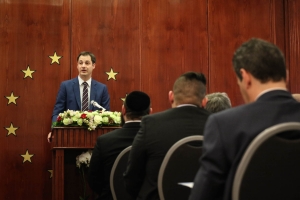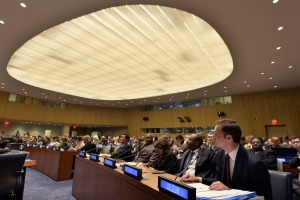BIPT advances propositions to render more smoothly the process of changing fixed telecom operators

Changing fixed telecom operators is not as simple as changing mobile operators. To render the process of changing operators more smoothly in the future, BIPT identified the obstacles consumers may encounter and lists a series of suggestions to facilitate the process. Today, BIPT has submitted its analysis to the Minister of Digital Agenda and Telecom Alexander De Croo. BIPT feels for instance that there should be a simple, predictable, fast and synchronised process obliging the new operator to transfer all services provided by a fixed telecom operator within a given term. The operators should inform the consumer more accurately about the steps to be taken. Other additional obstacles have also been identified, such as the difficulty to compare offers, the financial costs of a transfer and the intervention of a technician at home.
One of BIPT's surveys shows that, on average, the consumer gives a score of 6/10 as for the degree of ease for changing fixed operators and on average 8/10 as regards the degree of ease for changing mobile operators. Changing fixed operators, often for various services at the same time (e.g. telephony, Internet and television) is indeed not as simple as changing mobile operators. In 2014 1,117,891 mobile number transfers took place, compared to 289,209 fixed number transfers. 26% of the respondents indicate indeed that a technical or administrative ease could be one of the motivations convincing them to change operator.
In order to render the process of changing operators as smoothly as possible in the future and to give the consumer a positive experience, BIPT has identified, by means of a national consultation, numerous obstacles consumers may encounter when they should wish to change operators. These obstacles have been subdivided into three classes: 1) a poor coordination and procedure for changing operators, 2) a lack of consumer information and 3) financial and practical obstacles.
For each of these problems BIPT suggests possible solutions in a report, two of the most important of which are summarised below:
- To avoid service interruptions or double invoicing when changing fixed operators a simple, predictable, fast and synchronised process in which the consumer only has to address the new operator who shall complete the transfer within a given maximum term, is imperative. The subscriber then signs a transfer form by means of which he authorised the new operator to transfer the number and to terminate the existing contract with the operator. Operators shall then have to coordinate administratively and operationally in order to keep a possible interruption of service as short as possible. The invoice might help in this regard by mentioning all existing information regarding the line identification with operators holding their own infrastructure.
- Operators should provide clear and accessible information on their websites and through their customer services regarding the steps to be taken to change operators. The transfer form could also inform the consumer of his rights and obligations. During and following the completion of the process the operators should inform the consumers as soon as possible of the deactivation and activation of the service.
Finally BIPT advises consumers to compare telecom prices via its website www.besttariff.be. This online price comparison tool, which is managed by BIPT, has to mention the telecom operators offers and prices. Since January it is possible to compare prices with or without taking into account promotions (for existing or new customers) and to know exactly how much one shall pay once the promotion has ended.
Today, BIPT has submitted its analysis to the Vice-Minister and Minister of Digital Agenda and Telecom Alexander De Croo. "I welcome the BIPT study, which maps the problems that occur when switching operators. The idea is now to put the solutions proposed into practice as soon as possible. This is in the interest of consumers and of competition in the sector", Minister De Croo says.
Jack Hamande, chairman of the BIPT Council: “With these proposals BIPT hopes to make life easier for consumers who wish to switch operators for telephony, Internet and/or television. BIPT will help the Minister to bring those proposals, which aim to further boost competition on the fixed telecom market, to a favourable conclusion quickly.”


